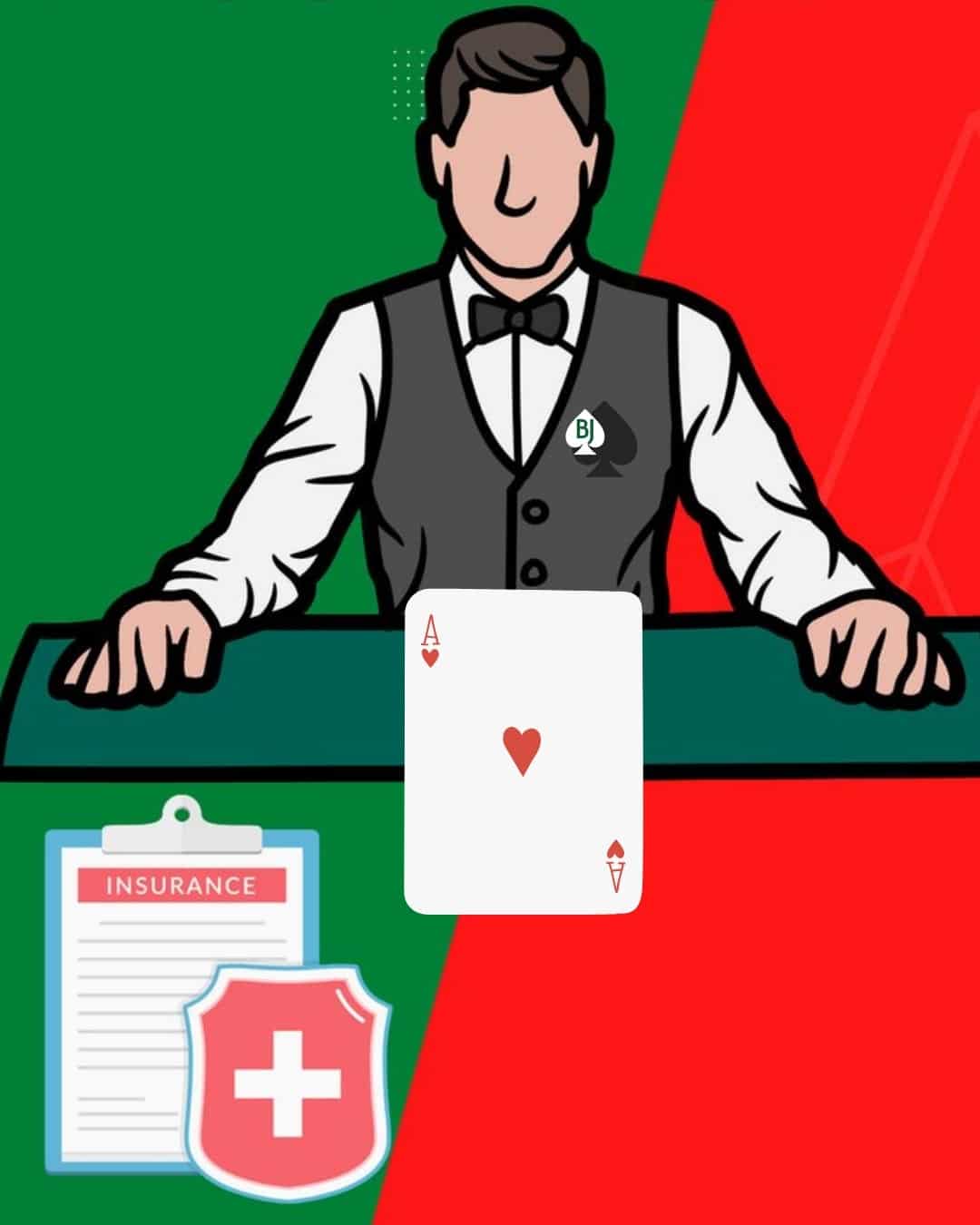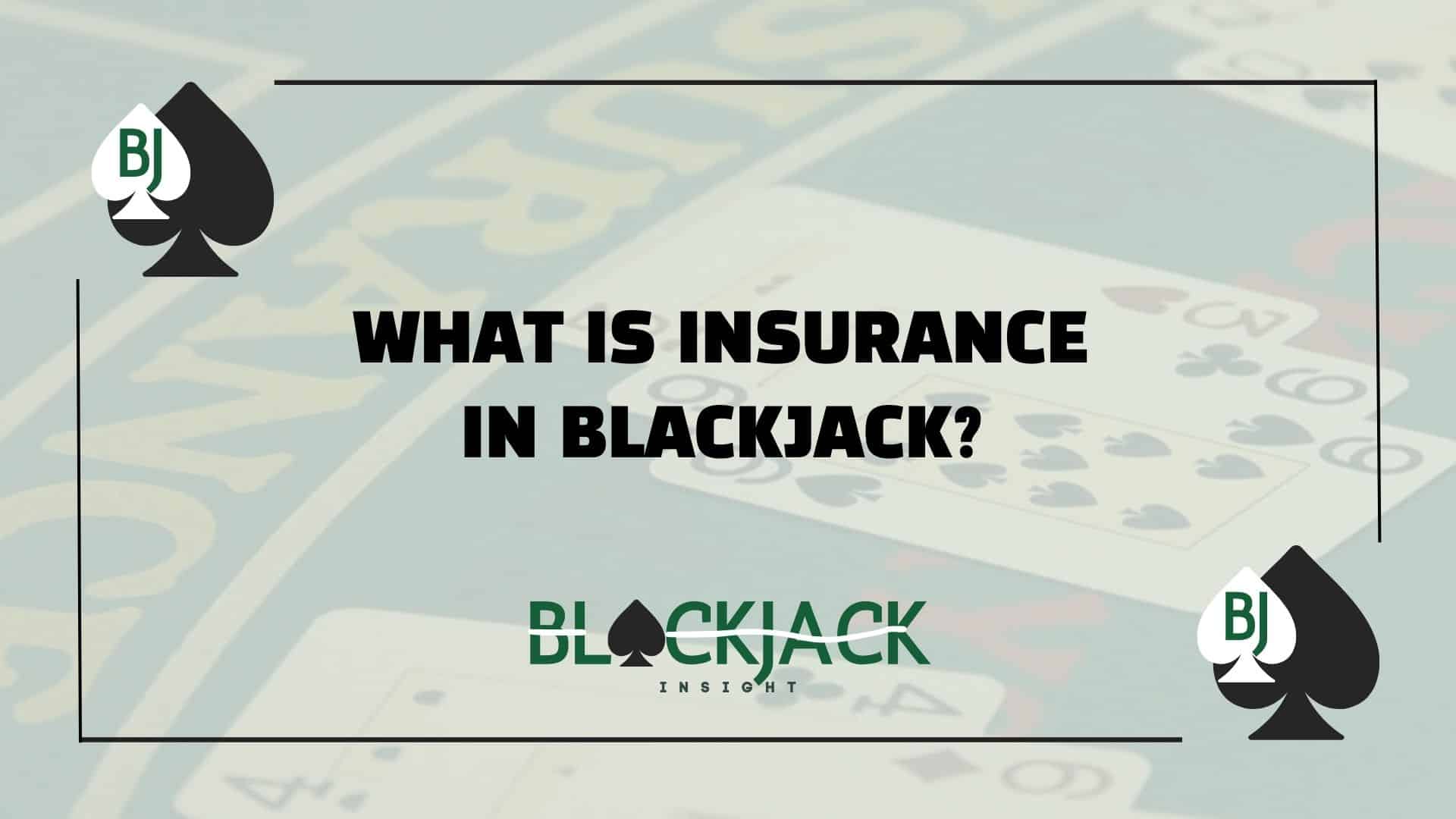What Is Insurance in Blackjack?
Table Of Content
Blackjack insurance, though often thought of as a side bet, is a separate protective wager offered only when the dealer shows an Ace. It pays 2:1 if the hole card is 10-valued, but with just a 30% chance of a dealer blackjack, it’s rarely worth taking.
Walk into any casino, sit at a blackjack table, and sooner or later, you’ll hear the dealer say, “Insurance?” It sounds formal—almost like paperwork, right? But no, we’re not talking about dental coverage or car protection here. We’re talking about one of the most misunderstood side bets in the entire game of blackjack. So, what is insurance in blackjack?
If you’re new to the game or even semi-comfortable with it, this “insurance” thing might sound helpful. Spoiler alert: It usually isn’t. But we’ll get into that in a minute.
What Does Insurance Mean in Blackjack?
Insurance in blackjack is a side bet that comes into play when the dealer shows an Ace as their face-up card. The house then offers you the chance to “insure” your hand in case the dealer’s hole card is a 10-value card (10, Jack, Queen, or King)—which would give them a natural blackjack. Check this to learn more information about 10-value cards.
Sounds smart, right? Protect your hand; play it safe. That’s exactly what the casino wants you to think. In theory, it feels like a safety net. In practice? It’s more like tossing chips into a hole.

How Does Insurance Work in Blackjack?
Insurance in blackjack is like a side bet offered whenever the dealer’s face-up card is an Ace. Essentially, you’re betting that the dealer’s hidden card (the hole card) will be a 10-value card (10, Jack, Queen, King), which would give the dealer a natural blackjack.
- Cost of the bet: Half of your original wager
- Payout: 2:1 if the dealer has blackjack
- Outcome if the dealer doesn’t have blackjack: You lose the insurance bet, but you continue playing your main hand as usual
At first, it can look like a “safety net,” but there’s more to the story.
How Does the Payout for Insurance Work?
If the dealer’s hole card completes the blackjack, you get a 2:1 payout on your insurance bet.
- For instance, if your original bet is $20, your insurance bet would be $10. If the dealer has a blackjack, you get $20 from the insurance (2:1 on $10), which cancels out your loss on the main hand.
If the dealer does not have blackjack:
- You lose your $10 insurance bet.
- The round continues with your original $20 wager still active.
It sounds balanced on the surface, but the house edge often tilts this bet against the majority of players.
The Math Behind Insurance: Why It’s Usually a Bad Bet
The central issue is probability. Statistically, the chance that the dealer’s face-down card is a 10-value is roughly 30%. That means you’ll lose your insurance bet around 70% of the time. If you repeatedly take insurance over many sessions, the math won’t work in your favor.
I recall a stretch early in my playing days when I routinely said “yes” to insurance, thinking it protected me from big losses. Ironically, it caused more frequent, smaller losses, which added up over time. Once I reviewed the numbers, I realized I was essentially handing chips to the house.
When and Why Is Insurance in Blackjack Offered?
Insurance only appears when the dealer’s upcard is an Ace, a situation that naturally raises the likelihood of blackjack. The rationale is that an Ace plus a 10-value card (known as a natural) is almost impossible for other players to beat—so the casino lets you “protect” your bet.
- The dealer has a 10 in the hole: if you’ve taken insurance, you win 2:1 on that blackjack side bet, essentially recovering what you lose on your main bet.
- If the dealer does not have a 10 in the hole: you lose your insurance wager, but your primary hand is still in play, and the round proceeds.
Although insurance might seem helpful in these moments, most stats show it favors the house.
When Might It Make Sense to Take Insurance?
- Card Counters: If you’re adept at counting cards and can identify a high concentration of 10-value cards left in the shoe, insurance can become mathematically favorable.
- Special Game Variants: Some blackjack variants (e.g., Spanish 21 or Free Bet Blackjack) come with unique rules that might alter the usual odds for or against insurance.
Outside these very specific circumstances, it’s typically a losing proposition for the average player.
Common Mistakes Players Make with Insurance
- Assuming It Always Protects You: Insurance only covers the narrow outcome of the dealer having blackjack—it doesn’t safeguard you from other unfavorable scenarios.
- Chasing Peace of Mind: Some players repeatedly buy insurance to avoid big swings, only to rack up steady, incremental losses.
- Relying on a Hunch: Basing decisions on “it just feels right” usually ends in disappointment. Sticking to math and strategy is far more reliable.
Early in my playing days, I’d frequently opt for insurance just because I hated the feeling of a total bust if the dealer flipped a 10. Unfortunately, those “little side bets” added up faster than I ever imagined.
FAQs
1. Does taking insurance in blackjack affect my overall odds of winning?
Yes, taking insurance generally worsens your overall odds because it introduces a side bet that statistically favors the casino. Since the dealer’s hole card is only a 10-value card about 30% of the time, you will lose your insurance bet more often than you win it. Over many hands, this extra cost adds up, making insurance a poor choice for most players unless they are skilled card counters.
2. Why do casinos offer insurance if it’s a bad bet for players?
Casinos offer insurance because it increases their long-term profits by appealing to players’ fears of losing to a dealer’s blackjack. While it seems like a protective bet, most players end up losing money on it over time due to the unfavorable odds. It’s designed as a psychological safety net, but in reality, it’s just another way for the house to gain an edge.
3. What’s the Difference Between Insurance and Even Money?
If you have a blackjack and the dealer’s upcard is an Ace, you may hear the term “even money.” This is simply a faster way of offering insurance to a player with a guaranteed blackjack. The dealer pays you 1:1 on your main bet, no matter what happens next. Although it feels safer, the underlying math remains the same as taking insurance—over many hands, the house still holds the advantage.



